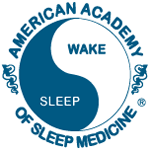You’ll still be able to request a decaf coffee in the afternoon. But you’ll have to wait about four minutes for brewing time. The company reports that demand for decaf coffee in some of its stores tends to drop after noon.
This is likely due to the timing of the body’s sleep-wake pattern. A natural “dip” in alertness tends to occur in the afternoon. So it is tempting to rely on caffeine in the afternoon to fight off sleepiness.
Caffeine is a drug that is a quick-acting stimulant. It reaches a peak level in your blood in 30 to 60 minutes. But it also can stay in your system for hours. This may cause problems when you try to go to sleep at night.
A new review looked at studies of how caffeine affects your sleep. One study shows that people who don’t consume caffeine may sleep longer and have a better quality of sleep. Another study found that people may have less trouble falling asleep on days when they drink decaf coffee.
Choosing decaf is still likely to give you a small dose of caffeine. A study found that a Starbucks decaf espresso may have 3 mg to 15.8 mg of caffeine. A 16-ounce serving of a Starbucks decaf brewed coffee may have 12 mg to 13.4 mg of caffeine.
In contrast, Starbucks reports that a regular espresso may have about 75 mg of caffeine. But it’s the 16-ounce, “grande”-size Starbucks coffee that really tips the scales. It may have 330 mg of caffeine. Another study shows that this is the same caffeine content as six, 12-ounce cans of Mountain Dew. It’s also the same as two cans of an energy drink like No Fear.
Starbucks also reports that actual caffeine content can vary greatly. That’s exactly what another study found. Researchers bought a 16-oz cup of the same type of coffee from one coffee shop for six straight days. They found that the caffeine levels ranged widely from 259 mg to 564 mg.
So in the afternoon you may want to skip the coffee and choose a drink with a lower caffeine level instead. Try a soda or a cup of brewed tea. Better yet, avoid caffeine and take a quick 20-minute nap; a study shows this may be your best option for an afternoon boost.







No comments:
Post a Comment